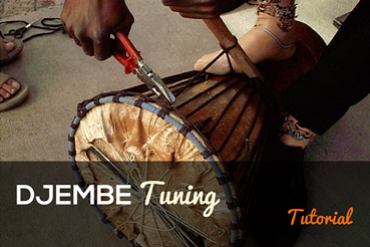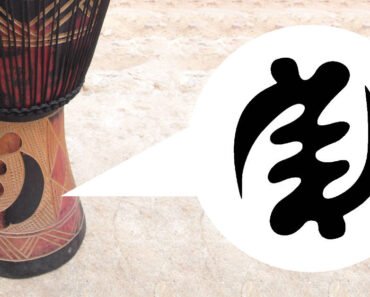djembe (/'ʒɛmbə, 'ʒɛmbeɪ/)
Where does the word come from? What does djembe mean?
Hear pronunciation below:
[zoomsounds_player source="1339" type="detect" config="default" autoplay="off" loop="off" open_in_ultibox="off" enable_likes="off" enable_views="off" enable_download_button="off" play_target="default"]
The djembe is the goblet shaped drum from West Africa.
As for the origin of the word, the truth may be lost in the mists of time. The word is often found to mean different things in different parts of West Africa. There are several claims to its origin.
Abdoul Doumbia, a Djembefola from Ségou in Mali explains that the word 'jembe' comes from two Bambara words, 'Dièn' which means unity and 'Bin' that signifies harmony.
Another belief is that the word comes from a saying in Bambara, “Anke djé, anke bé”, or “everyone gather together in peace.”

One traditional testimony recounts that the word comes from two words in the ancient Malinke language. 'Djem' was the tree originally used to make the drum shell (a very dense wood found in Mali) and 'be' (pronounced 'beh') was a goat, used for skinning the drum.
Spelling
Variations on the spelling of djembe include jembe, dyìnbe, djimbe, guiembe, jimbe and yembe.
The most commonly used is 'djembe', which comes from the French, who did much to study and describe African drumming to the world.
As there is no hard "j" sound that correlates to the English, the "dj" spelling was used.
At the same time there is an argument that the French spelling is a throwback to colonial rule and should be dropped in favour of 'jembe', which may be phoenetically closer to the original African language.
In the Malinke language, the word is spelled "dyìnbe" because the Malinke orthography does not include the letter "j".
| This post may contain affiliate links. If you click on the links and buy, we get a commission. It doesn’t cost you anything. See the full disclaimer here. |






